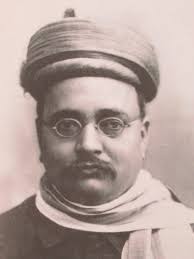Important Facts For Prelims
Gopal Krishna Gokhale
- 11 May 2020
- 3 min read
Why in News
The Prime Minister paid tribute to Gopal Krishna Gokhale on his 154th birth anniversary.
- Gopal Krishna Gokhale was a great social reformer and educationist who provided exemplary leadership to India's freedom movement.
Key Points
- Birth: Gopal Krishna Gokhale was born on 9 May 1866 in Kotluk village in present-day Maharashtra (then part of the Bombay Presidency) in a Brahmin family.
- Ideology:
- Gokhale worked towards social empowerment, expansion of education , struggle for freedom in India for three decades and rejected the use of reactionary or revolutionary ways.
- Role in Colonial Legislatures:
- Between 1899 and 1902, he was a member of the Bombay Legislative Council followed by work at the Imperial Legislative Council from 1902 till his death (1915).
- At the Imperial legislature, Gokhale played a key role in framing the Morley-Minto reforms of 1909.
- Role in INC:
- He was associated with the Moderate Group of Indian National Congress (joined in 1889).
- He became president of INC in 1905 in Banaras session.
- This was the time when bitter differences had arisen between his group of ‘Moderates’ and the ‘Extremists’ led by Lala Lajpat Rai and Bal Gangadhar Tilak among others. The two factions split at the Surat session of 1907.
- Despite the ideological difference, in 1907, he intensely campaigned for the release of Lala Lajpat Rai, who was imprisoned that year by the British at Mandalay in present-day Myanmar.
- Related Societies and Other Works:
- He established the Servants of India Society in 1905 for the expansion of Indian education.
- He was also associated with the Sarvajanik sabha journal started by Govind Ranade.
- In 1908, Gokhale founded the Ranade Institute of Economics.
- He started english weekly newspaper, The Hitavada (The people's paper).
- Mentor to Gandhi:
- As a liberal nationalist, he is regarded by Mahatma Gandhi as his political guru.
- Gandhi wrote a book in Gujarati dedicated to the leader titled ‘Dharmatma Gokhale’.




